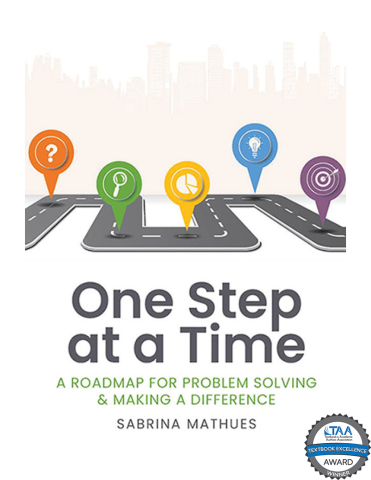Questions? Request Information
Become an Advocate for Your Community
Get equipped with the knowledge to help keep your community safe. When you earn your Bachelor of Arts in Social and Criminal Justice degree online from the University of Arizona Global Campus, you’ll gain a broad-based approach to working with law enforcement and the criminal justice system. Examine topics in criminal investigations, psychology, crime prevention, terrorism, the correctional system, and law.
You’ll investigate both the social and legal sides of working in the criminal justice field, and you’ll develop an additional understanding of the criminal justice system and the impact social issues have on maintaining a just society.
Upon completion of your bachelor’s degree in criminal justice, you will be able to:
- Analyze criminal justice issues within the systems of law enforcement, the judiciary, and corrections
- Evaluate the application of the social justice principles of equality, solidarity, and human rights toward building a just society
- Apply knowledge of cultural sensitivity and diversity awareness to social and criminal justice
- Deconstruct the relationship between law enforcement, the judiciary, and corrections
- Interpret the relationship between social justice and criminal justice
- Develop critical perspectives in the study of social and criminal justice by drawing on the fields of criminology, law, philosophy, psychology, science, and sociology
UAGC Award-Winning Curriculum
Military Students $250.00/credit
Undergraduate Courses $460.00/credit
Technology Fee** $115.00/course
Books and Other Class Materials** $125.00/average per course
Graduation Fee $150.00
Total Program Cost See UAGC Catalog¹
¹Keep in mind that this figure doesn’t factor in any potential discounts, partner benefits, or impact of accepted transfer credits, if eligible.
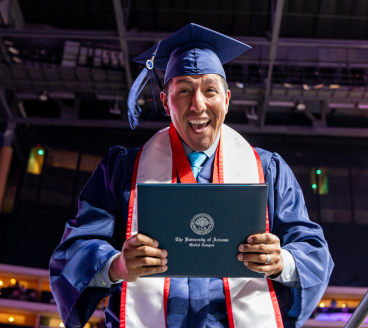
UAGC offers enrolled students access to ScholarshipUniverse, a platform that tailors external scholarship opportunities to your unique situation, making it easier to find and apply for scholarships.
UAGC is proud to provide reduced tuition rates for our academic and corporate partners, helping community college transfer students and corporate employees earn their degrees at a lower cost.
Careers Related to Bachelor of Arts in Social and Criminal Justice


U.S. Department of Labor data regarding salary ranges and job growth projections are national in nature and do not guarantee employment, any specific salary, or job growth. Also, national long-term projections may not reflect local and/or short-term economic or job conditions. Top Skills are provided via Lightcast job postings data and may not align with UAGC program learning outcomes. UAGC programs are not designed to meet the state educational requirements for a specific professional license or certification in any state. UAGC does not guarantee employment placement, any specific salary from employment, or career advancement.

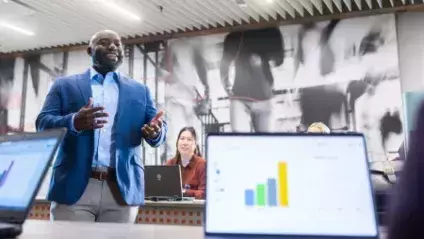
Course Overview
To earn your Bachelor of Arts in Social and Criminal Justice degree at the University of Arizona Global Campus, you must complete 120 credits. You will need to complete 30 upper-division credits, of which 18 credits must be from the major program. A total of 30 credits must be completed at the University of Arizona Global Campus to meet the residency requirement. You may be able to transfer approved credits from community colleges, other previous college coursework, or other life experiences such as military service or job training toward your degree.
This program is not designed to meet the state education requirements for a specific professional license or certification in any state nor is it designed to meet the state educational requirements for a specific professional license or certification in any state. Students seeking licensure or certification in a particular profession shall carefully research the requirements prior to enrollment and regularly review the requirements as they are subject to change. Requirements vary by state. The University of Arizona Global Campus does not guarantee that any professional organization will accept a graduate’s application to sit for any exam for the purpose of professional certification. Further, a criminal record may prevent an applicant from obtaining licensure, certification, or employment in their field of study.
This program is not designed to qualify a student for employment with a federal, state or local law enforcement agency. State and local police agencies may require training and certification specified by the individual state’s law enforcement board and may be provided post-hire at a police academy. Other federal, state, and local agencies as well as private entities may have individualized requirements. Students shall contact individual agencies and states’ law enforcement boards for additional information relating to these requirements.
Certain degree programs may not be available in all states.
The Online Teaching Support Certification recognizes programs that require all online faculty to undergo training in best practices for online course delivery, provide faculty with ongoing pedagogical support, encourage faculty professional development to increase their knowledge and skill in online teaching, emphasize instructor availability and feedback to learners, and collect and use feedback from learners to improve online teaching. Learn More

The Online Learner Support Certification recognizes programs that provide all the critical student and academic services needed for learner success and use learner feedback to continuously improve those services.
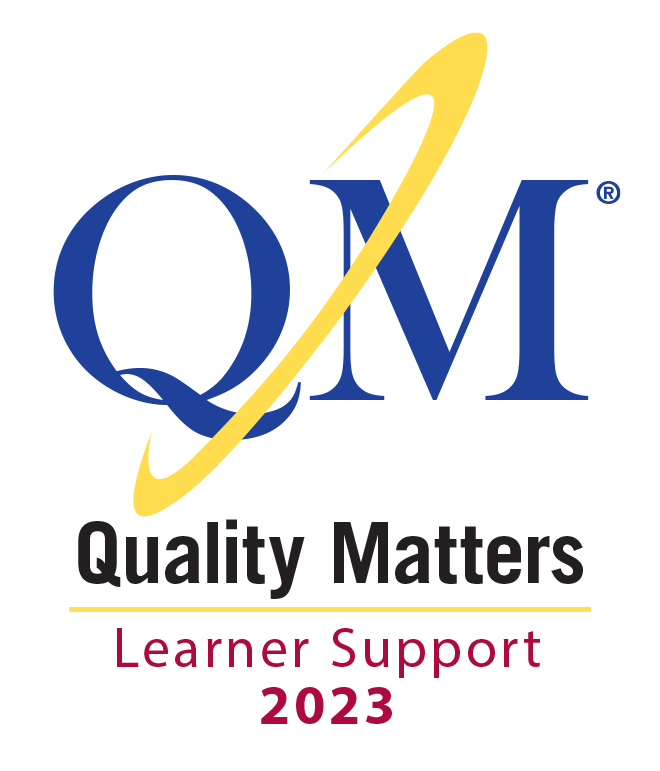
The Air University Associate to Baccalaureate Cooperative (AU-ABC) Air University Associate to Baccalaureate Cooperative (AU-ABC) is a partnership between the University of Arizona Global Campus and the Community College of the Air Force (CCAF). The BA in Social and Criminal Justice is part of this agreement. The agreement allows students who have earned an Associate in Applied Science degree from CCAF to transfer their credits toward this degree at UAGC, significantly reducing the time required to complete their degree. Eligible students will need no more than 60 additional credits to finish their BA in Social and Criminal Justice. An example of how credits may transfer under this agreement can be found here.
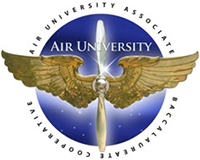
What Can I Do with a Degree in Social and Criminal Justice?
As a graduate with social and criminal justice degree, you may be eligible to pursue a variety of positions, including:
- Police Officer
- Deputy Sheriff
- Law Enforcement Officer
- Probation Officer
- Parole Agent
Apply the knowledge you've gained with your criminal justice degree toward a career in the criminal and social justice field. The U.S. criminal justice system faces unique and unprecedented challenges in the 21st century, and with this degree, you can be at the forefront of institutional change.
Gain insights into the criminal justice job market by reviewing the Bureau of Labor Statistics market outlook report.
I love UAGC because it’s online and I can be a mom, work, and still accomplish my educational goals.
Bachelor of Arts in Social and Criminal Justice FAQs
-
A bachelor’s degree in social and criminal justice can open up career paths to jobs in law enforcement, corrections, probation and parole, and police work.
-
Core courses commonly include criminology, criminal law, sociology, psychology, ethics, and research methods. Through your criminal justice degree classes at UAGC, you’ll investigate both the social and legal sides of working in the criminal justice system. By examining topics in forensics, psychology, crime prevention, terrorism, the correctional system, and law, you will develop the skills and gain the knowledge needed to build an effective career in criminal justice.
-
The UAGC online criminal justice program allows you to collaborate with classmates from diverse backgrounds in a flexible and collaborative online environment. Experience an online classroom that gives you the flexibility to create your own schedule, allowing you to complete your coursework more efficiently.
-
The increasing quality and accessibility of online education have significantly reduced the stigma associated with online degrees. According to U.S. News & World Report, many employers now recognize the value of online programs, particularly in fields like criminal justice where flexibility and continued education are often essential.
-
To be as successful as possible in your program, you’ll need basic computer skills, reliable internet access, and a compatible device (laptop or desktop computer). Details on technology requirements can be found in the UAGC Academic Catalog. As a UAGC student, you’ll have 24/7 support if you run into any technical difficulties.
See What Else UAGC Has to Offer
Questions? Request More Information
To access this rate using the Liberty Grant, only eligible undergraduate active duty service members, members of the National Guard, Reservists, spouses of active duty, members of the National Guard and Reservists, Department of Defense employees using Tuition Assistance (TA), and civilian employees of the United States Coast Guard (only if utilizing Military Tuition Assistance) will qualify.
**
The Technology Fee covers access to University systems such as the online classroom, the Student Portal, and other academic resources. The Technology Fee and the Course Digital Materials (CDM) Fee are fully refundable if a student does not attend beyond Day 3 of a course (Week 3 if covered under the University of Arizona Global Campus Promise Refund Schedule). After this time, the fee becomes non-refundable. Students are charged the Technology Fee for repeated coursework. Students are not charged the CDM fee for repeated coursework if previously charged.
†
The transferability of credits is subject to the University of Arizona Global Campus transfer credit policies and requires the submission of official transcripts. The official transcripts will be evaluated by the Registrar’s Office to determine the credits that will officially apply toward a UAGC degree program. Credits must be earned at the same degree level in order to be applied. Additional restrictions may apply. See the UAGC Academic Catalog for full undergraduate and graduate transfer policies.


